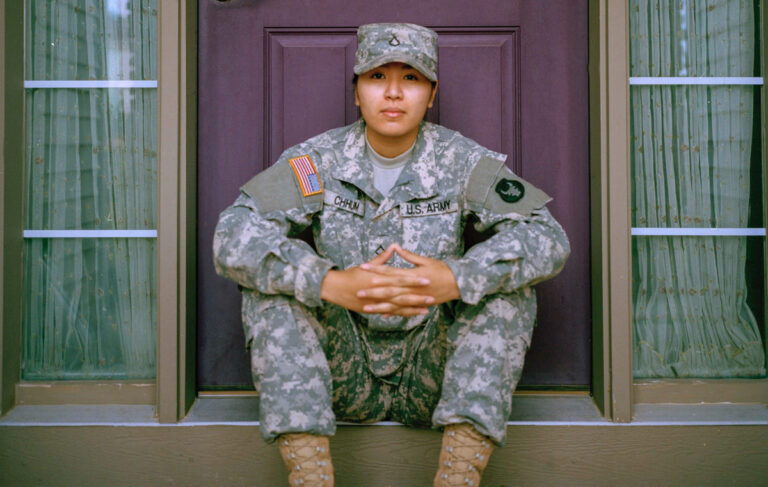Air Force trials VR programme for sexual assault and suicide prevention training

The US army has faced a growing problem in its rank for decades now. According to Pentagon data, between 2014 and 2019, the suicide rate for active-duty troops rose from 20.4 to 25.9 suicides per 100,000. In 2019, there were 7,825 reports of sexual assault involving service members as victims, according to The New York Times. In the last three months of 2020, suicides among National Guard troops nearly tripled to 39 from 14 over the same period the prior year.
But how do you prevent militaries from committing suicide or sexually assaulting each other? You train members of the US army to intervene whenever they see alarming signs. Which tools do you use for this very specific type of training? Virtual reality (VR) headsets. At least, that’s what the Air Force is testing at the moment.
Years of prevention training—often in the form of somnolence-inducing PowerPoint presentations—have done little to reduce the rates of either problem. Whether the VR model can ultimately do better remains an open question, but military officials are encouraged by the early self-reported responses to the training.
So far, over 1,000 Air Force personnel have participated in the training, reports The New York Times. 97 per cent of those who tried it would recommend it, and trainees reported an increase in the likelihood to intervene with a person in crisis, Air Force officials added. Among those ages 18 to 25—a generation more used to interactive virtual experiences make up the majority of new recruits—the impact increased sevenfold. Officials intend to train at least 10,000 airmen with the programme this year.
The VR programme is based on the fact that intervention by bystanders has been approved by experts as one of the few effective tactics for both problems. If they witness harassment in a bar, for instance, or alarming messages on social media representing a suicide threat, then they’ll know how to approach those problems tactfully.
The programme places airmen in related scenarios with photo-realistic actors and coaching on which responses would be constructive and which may not. “You are an active participant. You have to be ready. I think that it is going to help airmen retain and remember knowledge,” said Carmen Schott, the sexual assault prevention and response programme manager for the Air Force’s Air Mobility Command. He continued, telling The New York Times: “We don’t want people to feel judged. They may not make perfect decisions, but they will learn skills.”
In the military, many barriers can get in the way of people trying to intervene—especially against someone of a higher rank. As of now, airmen going through the programme have only been interacting with suicidal virtual colleagues via their headsets. Another bystander programme, which will roll out in July, will place the users in a bar, watching a scene of sexual harassment unfold.
But this VR programme is not the only educational tool with more of a hands-on approach. Gamification seems to also play a crucial part in successful and impactful teaching. With the growing use of computer-based therapy in mental health and promising results seen in the use of gamification in psychotherapy, the push to gamify sex education is part of a broader movement—deploying video games to target health issues ranging from depression to tobacco use.





